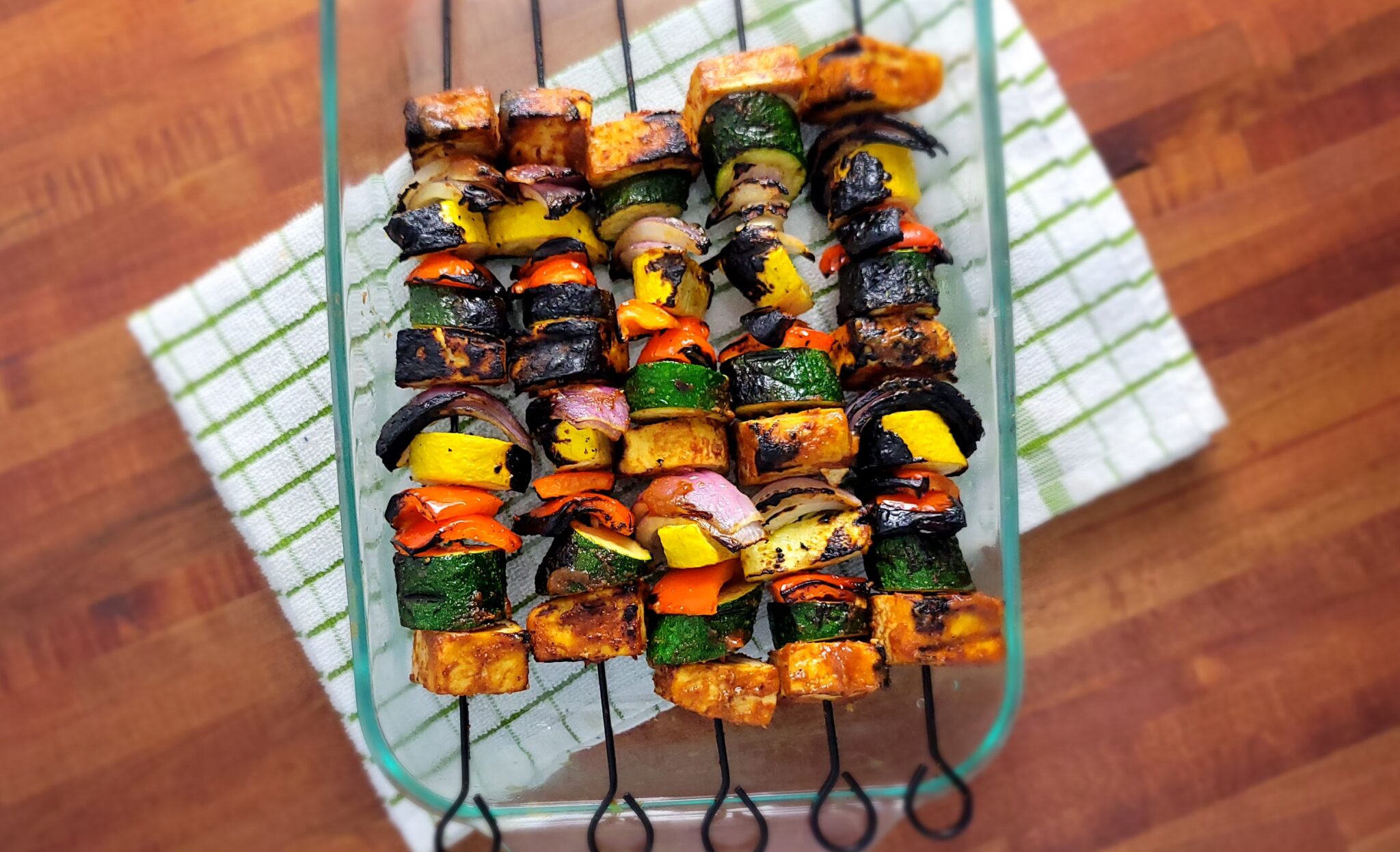Following a diabetic and kidney disease diet can seem overwhelming. Often people focus on what foods are not allowed, making the diet seem restrictive and complicated. But it doesn’t need to feel that way. You may be surprised to know that you can still enjoy your favorite foods by practicing awareness around your food choices.
In this article, you will learn about the purpose of the diet and see a sample meal plan to get you started. You can enjoy a variety of foods to manage your blood sugars and delay the progression of kidney disease.
What is a Renal Diabetic Diet?
The renal diabetic diet is all about managing the foods you eat to maintain consistent blood sugars throughout the day while limiting certain minerals and nutrients to not overload your kidneys.
Diabetic Diet
The goal of the diabetic renal diet is to manage the carbohydrates you eat throughout the day to keep your blood sugar steady. Eating balanced meals that include protein, complex carbohydrates, non-starchy vegetables, healthy fat, and fiber helps prevent spikes and blood sugar drops, keeping you full and satisfied for hours.
Complex carbohydrates are from whole and unprocessed plant-based foods that have more nutrients, like fiber, that digest slowly in the body. While, simple carbohydrates digest quickly and are commonly found in highly processed, sugary foods and drinks.
Overview of the renal diet
- Aim to eat complex carbohydrates that digest slowly regularly
- Limit simple carbohydrates that digest quickly to occasionally
- 1 serving of carbohydrate = 15 grams
- A meal can have between 3-5 servings of carbohydrates [1]
The amount of servings of carbohydrates you eat per meal differs for every person based on factors like age, weight, and activity level. You can work with your doctor or dietitian to track your intake of carbohydrates and blood sugars to see what amount works best for you.
Renal diet
The renal diet limits specific minerals and nutrients your kidneys can no longer remove from your body efficiently. The limited nutrients are sodium, phosphorus, potassium, and protein to prolong kidney function. The diet also involves regularly monitoring blood levels of these nutrients with your doctor or dietitian to ensure your diet works for you. [2]
Protein
When you have kidney disease, your kidneys have a hard time processing protein waste that can build up in your body, cause damage and make you feel unwell. Research has shown that following a low-protein diet in the early stages of kidney disease can delay the progression of the disease and the need for dialysis. [3]
If you are not on dialysis, the protein recommended in this diet can be from 0.6 to 1 gram per kilogram of your body weight per day, depending on your stage. Check out our protein guide for more details on how much protein you may need. [3]
Sodium
A diet high in sodium makes your body retain water, which can cause high blood pressure, swelling, and further damage to your kidneys. The daily sodium recommendation is less than 2300mg per day to help support your long-term kidney health. [4]
Phosphorus
Phosphorus is limited in kidney disease because your kidneys have difficulty excreting it from your body. It can accumulate in your blood, causing bone and heart problems. Phosphorus is found naturally in foods but also as an additive.
Research has shown that natural phosphorus in foods does not need to be limited because it is not absorbed as well as phosphorus additives are in our bodies. <50% of phosphorus found naturally in foods is absorbed by the body compared to about 70% from foods with phosphorus additives. [5]
Potassium
In the early stages of kidney disease, potassium is not significantly limited. You should only follow a lower potassium diet of 2000-3000 mg per day if instructed by your doctor. A low-potassium diet is typical for those in the late stages of kidney disease with high potassium levels since it can cause heart problems. [6]
Sample Meal Plan for The Diabetic and Kidney Disease Diet
Here’s a sample meal plan for a renal diabetic diet based on the food exchange list. The food exchange list is a resource used to help people with diabetes easily understand the nutrition of foods by food group. [7]
Breakfast
Oatmeal with Berries and Nuts
- 1/2 cup cooked oatmeal (1 starch)
- 1/2 cup unsweetened almond milk (1 milk)
- 1/2 cup blueberries (1/2 fruit)
- 1/4 cup chopped pecans (1 fat)
3 servings and 45g of carbohydrates
Lunch
Open Faced Chickpea Salad Sandwich
- 1/2 cup chickpea salad (1 protein and starch)
- 1 slice whole wheat bread (1 starch)
- 5 cucumber slices for garnish
- 1 cup mixed greens (1 vegetable)
- 1 cup strawberries (1 fruit)
3 servings of 45g carbohydrate
Dinner
Burrito Bowl
- 1 cup cooked brown rice (2 starch)
- 1/2 cup cooked black beans (1 starch, 1 meat alternative)
- 1/2 cup steamed broccoli (1 vegetable)
- 1/2 cup diced tomatoes (1 vegetable)
- 1/4 avocado, sliced (1 fat)
3 servings of 45 carbohydrate
Snack:
- 1/4 cup non-dairy yogurt (1 dairy)
1 serving and 15 of carbohydrates
Total: 10 servings and 150g of carbohydrate
This meal plan is a sample. Amounts of meals and snacks per day and carbohydrate servings can vary per individual.
Foods to Limit in a Diabetic Renal Diet
Limiting does not mean that you can never eat the following foods. It means that now you will need to be mindful of how much and when you eat these foods. These foods are not everyday foods and, if consumed, should be eaten in small portions occasionally.
- Highly processed foods and snacks
- Desserts, baked goods, and sugary candy
- Sugary beverages like soda and juice
- High-sodium foods like fried food or fast food
- Foods high in saturated fat, like bacon or butter
Conclusion
The renal diabetic diet includes many well-known recommendations for generally healthy eating, including limiting sodium and sugar and prioritizing whole grains, fruits, and vegetables. Take time to familiarize yourself with the primary nutrients in foods so you can feel confident creating your meals and snacks to support your kidneys and manage your blood sugar. Working closely with your doctor or dietitian will help you understand specific amounts of each nutrient your body needs to support your health.
Cukebook Membership
If you are wanting more support in your journey to improve your kidney health check out our membership where you can get access to seasonal meal plans, courses, and expert support and more.
Join Today!Diabetes Recipes
If you want more renal diabetic meal ideas check out our article on the best diabetes recipes roundup.
Browse Diabetes RecipesReferences
- U.S. Department of Health and Human Services. (n.d.). Diabetes Diet, eating, & physical activity – NIDDK. National Institute of Diabetes and Digestive and Kidney Diseases. Retrieved April 23, 2023, from https://www.niddk.nih.gov/health-information/diabetes/overview/diet-eating-physical-activity#howMuch
- U.S. Department of Health and Human Services. (n.d.). Diet & Nutrition for adults with advanced chronic kidney disease – NIDDK. National Institute of Diabetes and Digestive and Kidney Diseases. Retrieved April 23, 2023, from https://www.niddk.nih.gov/health-information/kidney-disease/chronic-kidney-disease-ckd/eating-nutrition/nutrition-advanced-chronic-kidney-disease-adults
- Kidney Disease Outcomes Quality Initiative. (2020, September). Kdoqi Clinical Practice Guideline For Nutrition In Ckd: 2020 Update. American Journal Of Kidney Diseases. Retrieved April 23, 2023, from https://www.ajkd.org/action/showPdf?pii=S0272-6386%2820%2930726-5
- Borrelli, S., Provenzano, M., Gagliardi, I., Ashour, M., Liberti, M. E., Nicola, L. D., Conte, G., Garofalo, C., & Andreucci, M. (2020). Sodium Intake and Chronic Kidney Disease. International Journal of Molecular Sciences, 21(13). https://doi.org/10.3390/ijms21134744
- Fulgoni K, Fulgoni VL 3rd. Trends in Total, Added, and Natural Phosphorus Intake in Adult Americans, NHANES 1988-1994 to NHANES 2015-2016. Nutrients. 2021 Jun 29;13(7):2249. doi: 10.3390/nu13072249. PMID: 34210102; PMCID: PMC8308364.
- Cupisti, A., Kovesdy, C. P., D’Alessandro, C., & Kalantar-Zadeh, K. (2018). Dietary Approach to Recurrent or Chronic Hyperkalaemia in Patients with Decreased Kidney Function. Nutrients, 10(3), 261. https://doi.org/10.3390/nu10030261
- The Academy of Nutrition and Dietetics, & American Diabetes Association. (2019). Choose Your Foods: Food Lists for Diabetes. Academy of Nutrition and Dietetics and American Diabetes Association.

